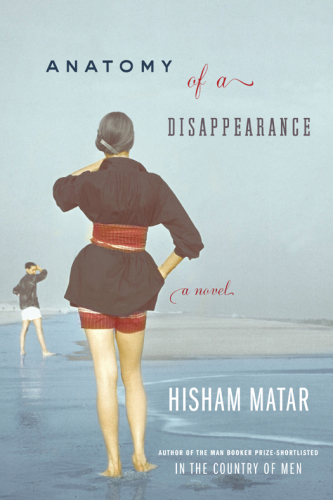
Anatomy of a Disappearance
A Novel
کتاب های مرتبط
- اطلاعات
- نقد و بررسی
- دیدگاه کاربران
نقد و بررسی

Starred review from May 23, 2011
Matar offers a searing vision of familial rupture and disintegration in his trenchant follow-up to In the Country of Men. Nuri el-Alfi is the son of Kamal Pasha el-Alfi, a powerful man (and exile from an unnamed Arab country that bears a striking resemblance to Matar's native Libya) living in Cairo and involved in "secret work." Two rough years after Nuri's mother dies, father and son meet Mona, a half-English, half-Arab woman, who, at 26 is 14 years older than Nuri and 15 years younger than Kamal. Nuri loves Mona madly, but of course she loves his father, and the two quickly marry and shuttle Nuri off to an English boarding school, where he pines for Mona and tries desperately to comprehend his father's personal history. Such understanding is made all the more impossible and necessary when, one wintry day, Kamal is abducted from the Geneva apartment of a woman neither Mona nor Nuri know. At once tough and tender, shaped by the sorrows of memory, Nuri's story is searching, acquiring power in its graceful acceptance of the impossibility of certainty. Although some of the novel's revelations seem more expedient than illuminating, the work as a whole is an elegant and smart evocation of the complexities of filial love.

July 1, 2011
A boy grows into a man in the suffocating vacuum of his father's abrupt and unresolved vanishing.
Though his books might seem to echo current events, it is the weight of personal history that drives the novels of Libyan author Matar (In the Country of Men, 2007). In his Booker-shortlisted debut novel, he deftly fictionalized his own experience—the author's dissident father Jaballa Matar was ruthlessly kidnapped by Egyptian secret-service agents in 1990 and imprisoned in a Libyan prison at the order of Muammar Gaddafi. In his latest, Matar portrays an even more acute sense of loss by contrasting two parental losses with the complicated relationship between a boy and his young stepmother. The narrator, Nuri Pasha, gracefully relates his story from the age of 11 to the present day. His mother, a wisp of a woman, dies early, driving Nuri and his father, an exiled political activist, together. "After she passed away he and I came to resemble two flat-sharing bachelors kept together by circumstance or obligation," Nuri muses. Their world is thrown into upheaval when Nuri's father meets 24-year-old Mona, a stunning Arab woman of English descent. Closer in age to Nuri than less-than-fatherly Kamal, Mona becomes an obsession for both father and son, adding to Kamal's confusing, furtive behavior. One winter as Nuri and Mona spend time together in Montreux, they receive word that Kamal has been abducted from the bedside of a woman in Geneva. A lesser writer might suppose that Nuri and Mona would find comfort in their communal untethering, but Matar cautiously and evocatively explores the unique and terrifying world in which Nuri finds himself. "I felt guilty, too, as I continue to feel today, at having lost him, at not knowing how to find him or take his place. Every day I let my father down."
A son without closure writes sparingly and brilliantly about what it is to suffer loss without end.
(COPYRIGHT (2011) KIRKUS REVIEWS/NIELSEN BUSINESS MEDIA, INC. ALL RIGHTS RESERVED.)

March 15, 2011
Matar's debut novel, In the Country of Men, won six international prizes, including the Commonwealth Writer's Prize (Europe and South Asia) for Best First Novel and the inaugural Arab American Book Award. It was also a finalist for the Man Booker, the National Book Critics Circle Award, and the Guardian First Book Award. Oh, and I found it searing, evocative, and original. Here is Matar's second work, featuring an 11-year-old born in exile after his parents flee revolutionary upheaval. Following his mother's death, Nuri and his father become entranced with half-English, half-Arab Mona when they spy her in a yellow bathing suit by the hotel swimming pool. Obviously, there will be complications, even tragedy. First serial rights were sold to The New Yorker. Get it.
Copyright 2011 Library Journal, LLC Used with permission.

August 1, 2011
The author of In the Country of Men (2007) limns a boy's complex relationship with his father. Nuri El-Alfi is 10 when his mother dies, leaving him in the care of his remote father, Kamal, a former minister in an unnamed Arab country's regime who is now a dissident living in exile in Cairo. It is Nuri who first catches sight of Mona, a beautiful young woman who captivates him when he is 12. Kamal romances and then marries Mona, inciting deep jealousy in Nuri, who is sent off to boarding school soon after. Two years later, Nuri travels to Geneva to meet Mona and his father for a holiday. Mona arrives first, but his father never shows up, and the pair discovers in the newspaper that Kamal has been abducted from a Swiss woman's apartment. Over the next decade, Nuri is left to patch together the truth about his father's political and amorous activities, leading him to a startling revelation. A subtle and graceful character study.(Reprinted with permission of Booklist, copyright 2011, American Library Association.)

























دیدگاه کاربران